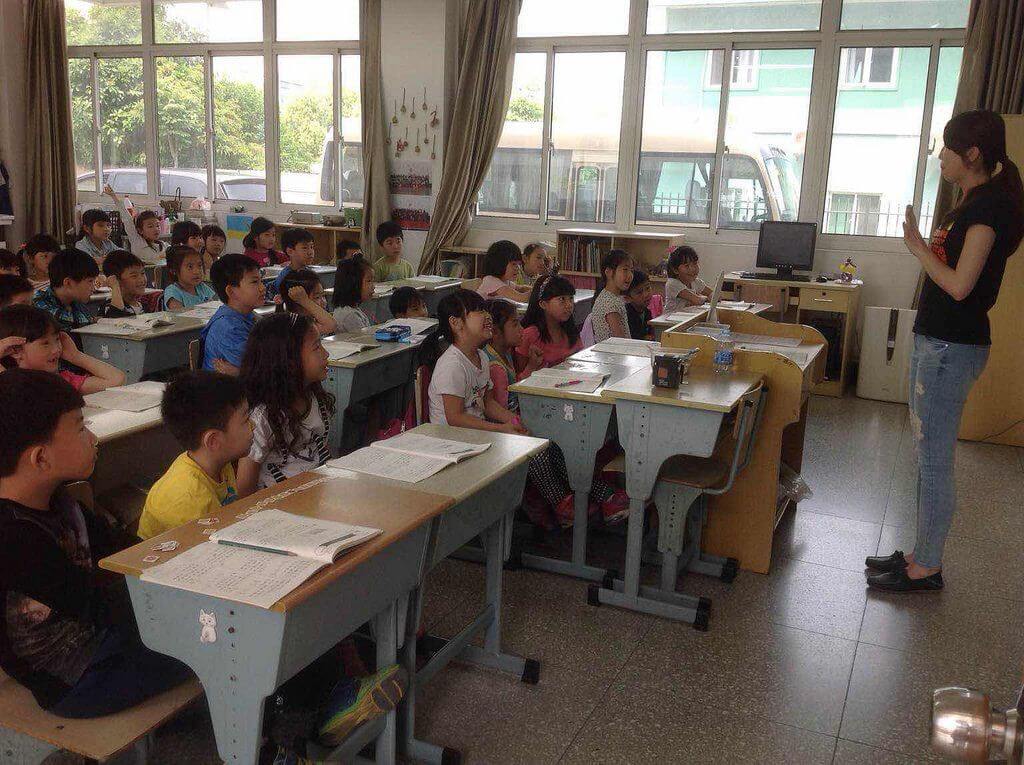作者/Yong Zhao
編譯/李明洋
[tabs]
[tab title=”中文”]
對第一沒興趣 上海可能退出PISA 2015
“對榮登國際評量第一不感興趣,致力於減輕負擔:上海可能退出PISA”是2014年3月7日,上海新民晚報的頭條。內容寫著,上海市巡視員尹后慶表示,”考慮退出2015年舉辦的下屆PISA”,因為”上海不需要所謂的’最牛學校’,需要的是把每一所學校都辦成遵循教育規律、遵循學生身心發展規律、為學生終身發展打好紮實基礎的學校。”
尹后慶指出,上海的教育缺失會因為榮登PISA世界第一而被蒙蔽,其中之一就是家庭作業量過多。例如上海的(中小學)教師”每天平均要花2至5小時的時間設計、批改、分析和講評作業;有一半以上的學生每天放學後做作業的時間要超過1小時;教師對作業量的估計明顯要低於學生和家長的實際感受;雖然作業的難度不算太高,但其中有許多機械的、重複操練的習題佔據了大量時間;還有,我們的教師比較習慣於用對和錯來批改作業,而學生卻十分希望教師能幫助他們解開答題的思路、弄懂存在的問題。”
一位不願具名的PISA事務官員透漏,”做作業只是學生發展過程中的一個環節,他們的技能和各項素質的發展,還應從玩耍、上網和遊戲等各種活動中去獲取,而不能只知埋頭於做作業或大量地延長做作業的時間。”
PISA中國項目組組長張民選教授則在2013年12月4日刊登的”新聞晨報”上表示,上海將不再參加PISA測試,而是要在將來發展出屬於自己的教育品質評鑑體系。張教授所提出的評鑑體系即所謂的”綠色評鑑(green evaluation)”。這個新的評鑑體系不再強調考試分數,取而代之的是教育品質的唯一評量,考試分數只是上海(以及全中國)用以評鑑學校的10項指標中的其中一項。”新的評鑑體系將評量學生的學習動機和參與度、師生關係、強身健體。”
上海是否及何時退出PISA仍未可知,因為這樣的舉動必須倚賴諸多因素,政治考量即為其中的影響因素之一。但很清楚的是,上海官員已意識到PISA給的並不是他們所要的。只是狹隘地以分數來定義教育品質將會蒙蔽教育的其他面向,而這些面向才是最重要的。
此外,根據一位上海教育政策研究者的說法,世界第一的頭銜似乎讓上海的教育官員大為頭痛。他認為,上海在PISA的成功反而適得其反。”我們非常清楚我們的教育是不行的,但是當你不自誇自己(的教育)是世界上最好的,人民就會離你而去。而現在,你宣稱自己(的教育)是最好的,人們就會開始質疑你,並且揭露一切你無法解決的問題。”中國政府不希望這種情況發生,”因此想要擺脫它。”
【作者介紹:Yong Zhao】
本文作者Yong Zhao為國際知名教育學者、作家及演講者,專精於全球教育方法及應用,目前任職於美國奧瑞岡大學(University of Oregon),擔任教育測量、政策和領導學系教授,發表學術文章百餘篇,以及出版20餘本書,包括2014年出版的”誰害怕大惡龍:為何中國擁有世界上最好(最差)的教育體系(Who’s Afraid of the Big Bad Dragon: Why China Has the Best (and Worst) Education System in the World)“、2012年出版的”世界級的學習者:教育創新與學生創業(World Class Learners:Educating Creative and Entrepreneurial Students)“,以及2009年出版的”迎頭趕上或引領世界:在全球化時代的美國教育(Catching Up or Leading the Way: American Education in the Age of Globalization)“。此外,他尚有經營部落格: http://zhaolearning.com.。
[/tab]
[tab title=”English”]
“Not Interested in Being #1:” Shanghai May Ditch PISA
“Not interested in #1 on International Tests, Focusing on Reducing Academic Burden: Shanghai May Drop Out of PISA” is the headline of a story in Xinmin Wanbao[original story in Chinese], a popular newspaper in Shanghai. Published on March 7th 2014, the story reports that Shanghai “is considering to withdraw from the next round of PISA in 2015” because “Shanghai does not need so-called ‘#1 schools,’” said Yi Houqin, a high level official of Shanghai Education Commission. “What it needs are schools that follow sound educational principles, respect principles of students’ physical and psychological development, and lay a solid foundation for students’ lifelong development,” says the article, quoting Mr. Yi.
One of the shortfalls of Shanghai education masked by its top PISA ranking, Mr. Yi, pointed out, is excessive amount of homework, according to the story. For example, teachers in Shanghai spend 2 to 5 hours designing, reviewing, analyzing, and discussing homework assignment every day. “Over half of the students spend more than one hour on school work after school [every day]; Teachers’ estimate of homework load is much lower than actual experiences of students and parents; Although the homework is not particularly difficult, much of it is mechanical and repetitive tasks that take lots of time; Furthermore, our teachers are more used to mark the answers as ‘right’ or ‘wrong,’ while students are hoping their teachers can help them open their minds and point out their problems.”
“Homework is only one of the elements that supports student development,” an unnamed PISA official toldXinmin Wanbao. “Their skills and qualities should also be acquired from a variety of activities such as play, online activities, and games instead of merely completing academic assignments or extending homework time.”
“Shanghai will not participate in PISA forever,” Professor Zhang Minxuan, director of PISA in China, told another Shanghai newspaper Xinwen Chenbao in December 2013[original story in Chinese]. “It will develop its own [education quality] evaluation system.”
The evaluation system Professor Zhang alluded to is the so-called “green evaluation” I blogged about previously. The new evaluation system deemphasizes the significance of test scores. Instead of being the sole measure of educational quality, test scores become one of 10 indicators Shanghai (and China) will use to evaluate schools. The new evaluation system will measure student motivation and engagement, student-teacher relationship, and physical fitness, according to Xinwen Chenbao.
Whether or when Shanghai decides to drop PISA is unknown and dependent on many factors, political consideration being one. But it is clear that Shanghai officials have acknowledged that PISA does not give them what they want. Its narrow definition of education quality as test scores obscures other aspects of education that are much more important.
Moreover, it seems that the #1 status has given Shanghai education officials much headache, according to a leading education policy researcher in Shanghai, who spoke to me on condition of anonymity recently. He believes that Shanghai’s success in PISA has backfired. “People know very well our education is no good, but when you don’t boast as the world’s best, they leave you alone. Now you claim to be the best, people begin to question you and expose all the problems that you cannot solve.” The government does not want that and “thus wants to get out of it.”
【Author:Yong Zhao】
Yong Zhao speaks around the world on educational issues, particularly on issues related to globalization and education, creativity, global competitiveness, educational reforms, and educational technology.
[/tab]
[/tabs]
圖片來源:flickr@Tzuhsun Hsu
原文刊登於《Yong Zhao》,經作者Yong Zhao授權編譯,未經許可不得轉載
